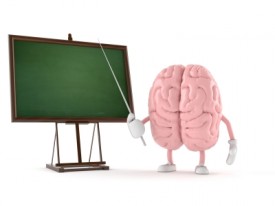
In a recent webinar for Scientific Learning titled “Teaching With the Brain In Mind”, Eric Jensen discussed the newest concepts in brain research and how they relate to teaching and classroom strategies. Jensen is the author of 24 books on brain research and is a former educator himself.
It turns out that almost everything that educators assume to be correct about the development of the brain in children and adolescents is mistaken. Mr. Jensen summarized what current research tells us about the childhood brain in three simple points:
1. Brains are far more variable than previously thought
It turns out that “normal, healthy brains” only exist in about 10% of the population. For the other 90%, plenty of internal and external factors have affected their development. This finding supports teachers’ intuition, that educational differentiation is just as important as they have always suspected.
2. Brains have the ability to change more than previously thought
An idea that gives hope to teachers everywhere, Mr. Jensen detailed research on brain plasticity, or a brain’s ability to change throughout life. A “plastic” brain thrives when in an optimal educational setting , but the converse is also true. High-performing students in the hands of low-performing teachers can and often do regress rapidly.
3. Every cognitive skill can be taught
Skills previously thought to be inherent or genetic, like attention span or capacity for responsibility, are actually teachable. This finding obviously has revolutionary implications for classroom management strategies. When paired with the previous two findings, one can conclude that every child has the ultimate potential for success when met with the proper strategies and support.
Throughout the webinar, Mr. Jensen tied the above guiding principles to real-world examples in a classroom. He touched on the efficacy of products like Fast ForWordand Reading Assistant, which are leaders in utilizing these guiding principles to make reading gains.
The professional educator leaves this talk not only with new insights into the workings of the childhood brain, but also with practical strategies that can be used the next day with students.
Related reading:
7 Amazing Discoveries from Brain Research
Brain Plasticity: A New Frontier For Education and Learning

